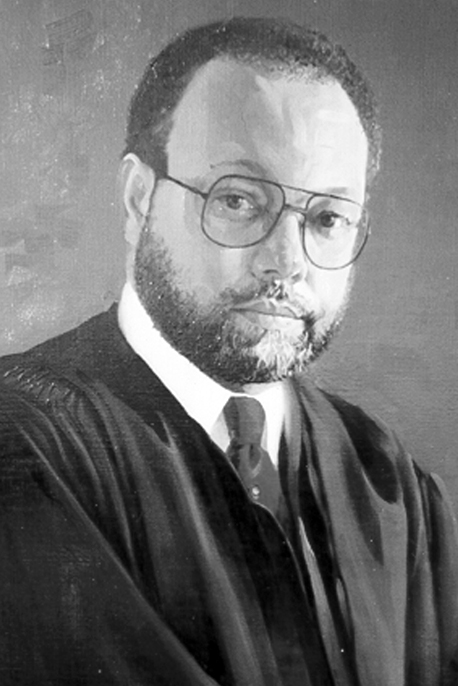Theodore R. Newman Jr., who in 1976 became the first Black chief judge on the D.C. Court of Appeals, the city’s highest court, and the first African American jurist nationally to head a state-level court system, died Jan. 6 at a hospital in Washington. He was 88.
The cause was a heart attack, said his companion, Eulla Wilson.
Judge Newman grew up in Jim Crow Alabama and was educated at Harvard Law School before embarking on a career that included service as a military lawyer, a period at the Justice Department’s Civil Rights Division and work in private practice specializing in estate planning and probate.
A Republican, he was appointed in 1970 by President Richard M. Nixon to serve as an associate judge on the D.C. Superior Court. On the bench, he developed a reputation for being “somewhat partial to the underdog … fair to the government and tough in his sentencing of criminals,” The Washington Post reported in 1976.
That year, President Gerald Ford appointed Judge Newman to serve as an associate judge on the D.C. Court of Appeals. He was almost immediately elevated to chief judge, a largely administrative post, and was reappointed to that position in 1980 for another four-year term. He declined to seek a third term amid personality clashes with fellow judges over court administration.
During his years as chief judge, Judge Newman appeared in Ebony magazine’s rankings of the 100 most influential African Americans. Toward the end of his tenure overseeing the court, he lamented to the magazine that only nine of almost 600 Black judges in the country sat on the highest state and D.C. courts, adding that it was “the highest state courts of the nation that are making so much of the law that affects the day-to-day lives of the poor, Black and otherwise disadvantaged people.”
Judge Newman was a senior judge on the bench from 1991 until retiring in 2016.
Theodore Roosevelt Newman Jr., known among colleagues as Ted, was born in Birmingham, Ala., on July 5, 1934, and grew up in Tuskegee, Ala. His father was a Methodist minister, and his mother was a schoolteacher.
After graduating in 1951 from what is now Northfield Mount Hermon School, a private school in Gill, Mass., he received a bachelor’s degree in philosophy from Brown University in 1955.
He told The Post that prominent civil rights leaders urged him to become the first Black graduate of the University of Alabama law school, but he instead accepted a spot at Harvard Law School, from which he graduated in 1958. He said his goal was to “return to Tuskegee, practice law, right the wrongs of society.”
But his three years as a judge advocate for the Air Force based in France, where he developed a lifelong passion for fine wine and French culture, broadened his ambitions beyond the small-town South.
He settled in Washington, got involved in GOP politics and had a brief stint with the Justice Department before entering private practice as an associate with the prestigious Black law firm Houston, Bryant & Gardner. He later was a partner at another Black firm, Pratt, Bowers and Newman, before joining the bench.
Among other professional duties, Judge Newman was a past president of the National Center for State Courts and a past chairman of the Judicial Council of the National Bar Association, an organization for Black lawyers.
His marriages to the former Constance Berry, who later became director of the federal Office of Personnel Management and assistant secretary of state for African affairs; Louise Bailey; and Gloria Sulton ended in divorce.
Survivors include his companion of 30 years, of Clinton, Md. Judge Newman was a Washington resident.
Early in his legal career, Judge Newman said, he considered a career in politics, musing about a return to Alabama to run for a congressional seat. He said politics ultimately did not suit his temperament.
“I treasure the right to say go to hell, I quit,” he told The Post in 1976. “In the political arena, one’s right to do that may not be as great. The question became, where can you have the greatest impact in the law. The answer was, on the bench.”








